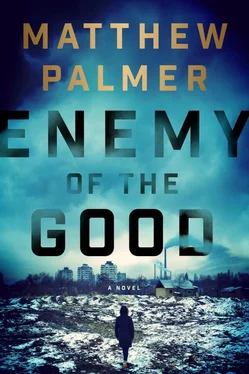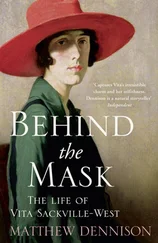This made it easier to ignore her seatmate, a rotund Russian businessman with sweat circles at his armpits who had been popping hard-boiled eggs from a plastic bag like peanuts for much of the long flight and washing them down with liter bottles of vodka. They were still an hour or more from Bishkek, at the tail end of a two-day odyssey that had so far taken Kate from Havana to Toronto, Reykjavik, London, and Dubai. This final leg of the trip was on Egypt Air, known in State Department circles as Inshallah Airways for the cavalier manner in which the pilots and grounds crew seemed to slough off onto Allah all responsibility for passenger safety and on-time arrival. This was far from the most direct route possible, but the Fly America Act and the regulations governing contract carriers were anything but flexible, and the department’s travel office, Kate was firmly convinced, was staffed entirely by sadistic trolls.
The stark, cold beauty of Central Asia was a far cry from Cuba’s lush greenery and turquoise water, but for Kate it was a homecoming of sorts. Bishkek was where she had gone to high school. Where she had experienced the joys and heartache of her first serious boyfriend. Where she had gotten drunk for the first time and smoked her first cigarette. Where she had discovered a love for Russian literature and the magical, romantic poetry of Pushkin and Lermontov.
It was where she had buried her parents.
The government had asked Kate, then just a few months into her sophomore year at Georgetown, where to send the bodies. She had not known how to answer. Her father had been in the Foreign Service and had somehow managed to avoid being posted to Washington. Assignments in D.C. were career enhancing, but her father had no interest in the bureaucratic knife fighting that was the essence of the Washington policy process. He turned down every offer that came his way to work at “Main State,” the department’s sprawling, run-down headquarters building in Foggy Bottom, even with the understanding that without Washington experience he was unlikely ever to make it to the higher ranks. In consequence, before freshman orientation at Georgetown, Kate had never lived in the United States. She had never spent more than three weeks at a stretch in America visiting grandparents in Ohio.
Her mother had no ties to America, not even a passport. Her citizenships were Kyrgyz and British. Her father, meanwhile, had no real connection to the United Kingdom beyond a short stint at the London School of Economics, where the two had met. They had lived together in Moscow, St. Petersburg, Tbilisi, and Kiev. But it was Bishkek where they had spent the most time as a family. They had been happy there, for the most part.
So Kate had made the decision to bury them in Bishkek’s Ala-Archa cemetery. The embassy had helped make the arrangements.
She had not been back to Kyrgyzstan since the funeral, a rainy November day with a wind that blew in off the steppes and cut through her black cloth coat like a knife made of ice. Officially, it had been a single car accident on a slick mountain road. But Kate never believed that. It was murder. President for Life Nurlan Eraliev had murdered her parents.
There was no evidence of this crime. That meant nothing. An absence of evidence was not evidence of absence. For Kate, it wasn’t a question of evidence. It was an article of faith.
Kate thumbed through her dog-eared copy of Ivan Turgenev’s Fathers and Sons , but she was too tired and distracted to concentrate. Outside, she could see villages scattered in the foothills, the first sign that Bishkek was close.
The plane began its descent and Kate realized that she had been holding her breath. She was on edge.
The terminal at Bishkek’s Manas International Airport was just like she remembered: drab, dirty, and vaguely Soviet in both design and execution. At immigration, she followed a sign that said CD, which stood for corps diplomatique , a vestige of another time when the language of international diplomacy had been French, the literal lingua franca. Now, thank god, it was English. In another fifty years maybe it would be Chinese. It was all about power, both absolute and relative.
The immigration officer on duty stared suspiciously at Kate, comparing her face to that on the passport picture with open skepticism. It was a bit of a stretch to conclude that the Eraliev regime would order a low-level functionary to harass her just for sport as she was coming into the country. But it was not entirely out of the question. There was little enough love lost between Kate’s family and the Kyrgyz government.
Kate collected her luggage at baggage claim, somewhat amazed that her bags had managed to keep pace with the ridiculous itinerary. Maybe her bags flew direct. It would be just like the State Department to book her luggage on a different—and better—route. The bags probably flew first class as well, or at least business class, waiting in the lounge with a mai tai on the layovers. Kate stretched her back to work out some of the kinks from forty-three hours in seat 36C and its equivalents. She was exhausted, dehydrated, and jet-lagged, the intercontinental trifecta. Kate knew from experience that no matter how tired she was, she would be up at three a.m., unable to sleep, slave to her own circadian rhythms.
It was easy to spot the embassy representative waiting for her on the other side of customs. She was blond, a shade that looked natural rather than dyed. Her outfit—a pink polo shirt and pressed flat-front khakis—looked straight out of the J.Crew catalog. And she was wearing sensible heels rather than the stilettos favored by the locals.
But what really marked her as American was her guileless smile. She looked genuinely happy to be at Manas airport on a Sunday afternoon waiting for the latest new arrival. It was the kind of smile that could not be faked. And there were few Kyrgyz or Russians who would even think to make the attempt.
The final clue, completely unnecessary, was the small cardboard sign she carried that said KATARINA.
The embassy greeter scanned the steady stream of passengers emerging from customs. She looked right past Kate, who triggered none of the “American” signals that made it so easy to spot fellow countrymen across a crowded room almost anywhere in the world. Kate could have been just another well-heeled local returning from a shopping expedition to Dubai or London. She was tall and slim, pretty in her own way but not striking. Her hair was dark and straight and there was something vaguely ethnic about her features that was distinct from the American midwestern norm. It was her mannerisms, however, that helped her blend in. Bishkek was perhaps the closest thing Kate had to home and she walked and dressed and talked like she belonged.
Kate was an American diplomat and she loved her country, but it was a somewhat abstract love, more admiration than passion. It was the kind of love that you might have for a relative whose company you enjoyed on the infrequent occasions of family gatherings. Her feelings for Kyrgyzstan were more complicated, colored by the kind of intimate familiarity she did not have with the United States.
Kate walked up to the bubbly blonde, who continued to look right through her.
“Hi, I’m Kate.”
Blondie looked startled, seemingly surprised at Kate’s ability to speak such excellent English. Her smile slipped for just a moment, but she caught herself and it reappeared quickly, a cloud passing briefly over the sun.
“Oh, I’m sorry,” she said. “I thought…”
“It’s okay,” Kate replied. She tried to smile back at Blondie with the same kind of high-voltage intensity but knew that she was not quite American enough to pull it off.
“Welcome to Bishkek.”
“Thanks. I’m sorry to drag you out on a Sunday afternoon.”
Читать дальше












